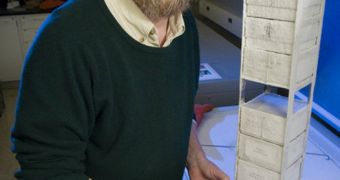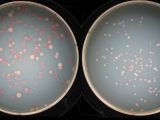Scientists in charge of a long-running experiment at the Michigan State University (MSU) say that evolution does not appear to be slowing down or hitting any walls, as predictive studies suggested years ago. The research, which is focused on growing cultures of Escherichia coli bacteria, reveals that the organisms are constantly improving.
The E. coli experiment was initiated by MSU biologist Richard Lenski back in 1988. At the time, he inserted 12 bacterial population in as many flasks, and then subjected all the containers to identical conditions. The bacteria are all kept in the same solution, at the same temperature, and have access to the same food source.
The work was meant to determine whether or not evolution can hit a brick wall as many scientists argued. They said that organisms living in an unchanging environment would eventually reach a peak fitness beyond which any improvement would be impossible.
However, the 25-year experiment demonstrated that this is not the case. In fact, it demonstrated that organisms can evolve continuously even if their environment stays exactly the same. Previously, it was thought that evolution only occurs in response to external stimuli, as a type of adaptation.
When Lenski first placed the E. coli populations inside the flasks, the bacteria needed about an hour to double their numbers. Now, a quarter of a century later, they only need 40 minutes to do the same. The research team estimates that 50,000 generations of bacteria have developed since 1988, NPR reports.
A single line of bacteria would have been enough for the experiment, but Lenski wanted confirmation for any conclusions that may have presented themselves. With 12 flasks containing E. coli, his experiment was confirmed 12 times over.
Researchers collect samples from the bacterial cultures once every few months. These samples are then stored in a freezer in Lenski's lab, allowing the research team to compare E. coli bacteria from thousands of generations apart.
Such comparative studies have revealed that the bacteria are getting increasingly fitter as they evolve, and that this trend does not appear to be abating. Lenski says that he would like to keep the experiment going for another 25 years.
“I think it's still got a lot to teach us about how evolution works under these very idealized but very transparent conditions,” the expert concludes.

 14 DAY TRIAL //
14 DAY TRIAL // 
